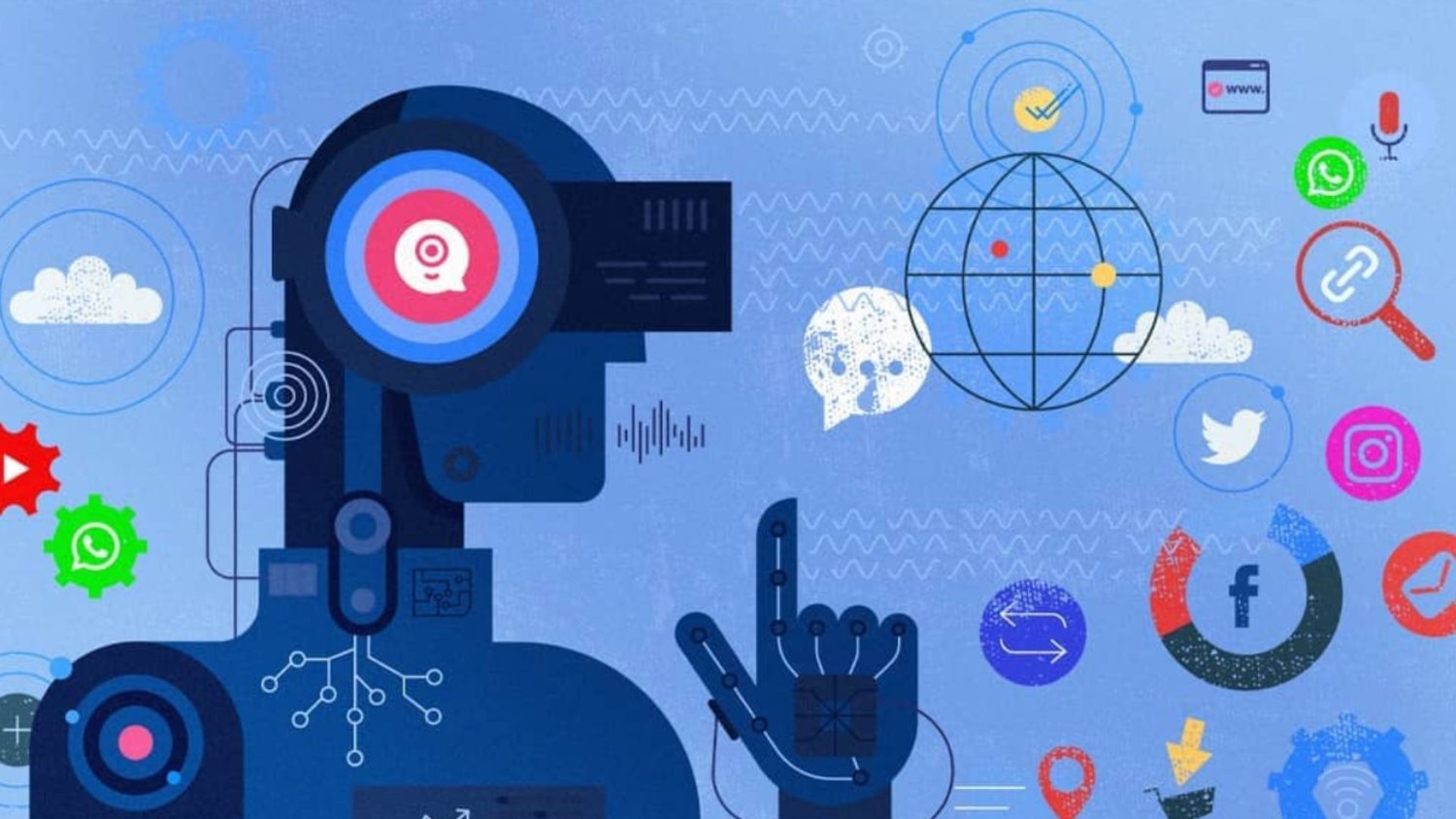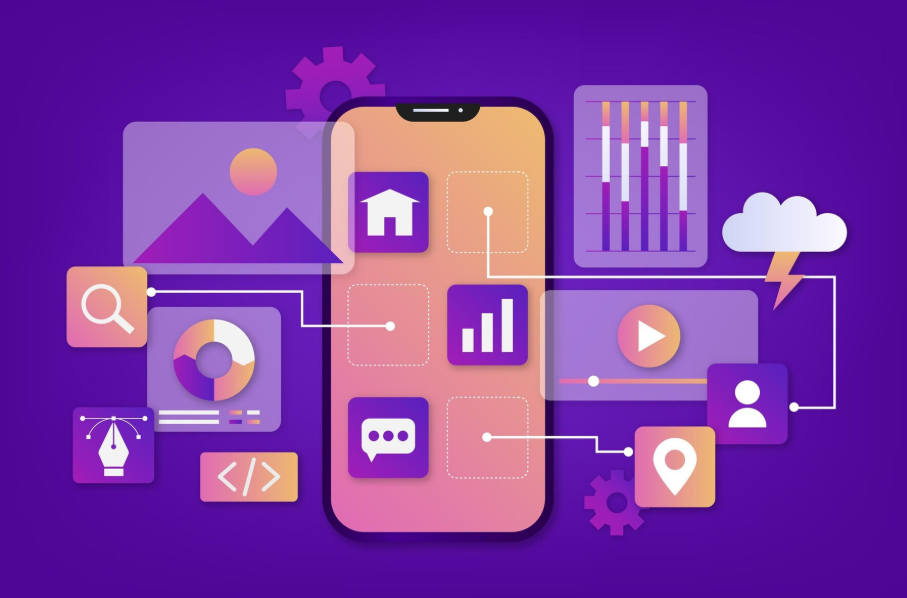Healthcare IT Professional Services in 2025

Healthcare IT Professional Services in 2025: Advancing Healthcare with Technology
The healthcare industry in 2025 is being reshaped by the rapid advancement of technology, and healthcare IT professional services are at the heart of this transformation. From improving patient care and data security to optimizing operational efficiency and compliance, these services are enabling healthcare organizations to navigate the digital age with greater ease and efficiency.
The role of healthcare IT consulting services has grown significantly, with healthcare providers increasingly relying on experts to integrate technology solutions into their systems. As the demand for personalized care and seamless communication between healthcare providers and patients increases, IT professionals are helping healthcare businesses adopt the latest innovations. This article explores what healthcare IT professional services are, how they benefit healthcare organizations, why they are crucial in 2025, when to consider them, where they are making the most impact, and who can benefit from these services.
What Are Healthcare IT Professional Services?
Healthcare IT professional services refer to specialized services offered by IT consultants and experts who help healthcare organizations leverage technology to enhance their operations. These services are designed to address the unique needs of the healthcare sector, such as improving patient care, optimizing workflows, securing data, and ensuring compliance with industry regulations. Key aspects of healthcare IT professional services include:
- IT Strategy and Planning: Healthcare IT consultants assess the organization's needs and help define a strategic roadmap to implement technology solutions that align with business goals.
- System Integration: Ensuring that different healthcare systems (such as EHR, CRM, billing software, and laboratory systems) are integrated effectively to ensure smooth data flow and operational efficiency.
- Cybersecurity: Securing sensitive patient data and ensuring that healthcare organizations comply with privacy regulations like HIPAA.
- Cloud Computing: Implementing cloud solutions to enhance scalability, improve data access, and reduce costs associated with maintaining physical IT infrastructure.
- Data Analytics: Using data analytics tools to extract meaningful insights from patient data to improve care, optimize resources, and make informed business decisions.
- Compliance and Regulatory Services: Ensuring that healthcare organizations meet the strict regulations that govern the healthcare sector, including data security laws and industry standards.
How Do Healthcare IT Professional Services Work?
Healthcare IT consulting companies typically follow a structured process to understand the specific needs of their clients and provide tailored solutions. Here is how these services work:
- Initial Consultation and Needs Assessment: The process begins with a detailed consultation where the healthcare organization’s IT infrastructure, goals, and challenges are assessed. This phase involves understanding the specific needs of healthcare providers, administrators, and IT teams.
- Strategic IT Planning: After assessing the needs, healthcare IT professionals develop a strategic IT plan that aligns with the organization’s objectives. This includes defining the technology requirements, selecting the right software tools, and ensuring that systems will integrate seamlessly.
- Implementation and Integration: The IT consultants then help implement the IT solutions. This could include setting up new systems, integrating existing software, migrating data, and configuring systems to work together smoothly across the organization.
- Training and Support: Healthcare IT professional services ensure that the organization’s staff is properly trained to use the new systems. Consultants provide ongoing support and troubleshooting to ensure that the systems run effectively post-implementation.
- Monitoring and Optimization: After deployment, healthcare IT consultants continue to monitor the performance of the IT systems. They also make recommendations for improvements and updates to ensure the systems remain efficient and compliant with evolving regulations.
Why Are Healthcare IT Professional Services Important in 2025?
- Improving Patient Care: In 2025, patient-centered care is more important than ever. Healthcare IT consulting services help healthcare providers enhance patient care through the implementation of technologies like patient engagement software, telemedicine platforms, and electronic health records (EHR), which allow for more personalized, data-driven care.
- Data Security and Compliance: With the rise of cyber threats, healthcare organizations need robust security systems to protect sensitive patient data. Healthcare IT consulting firms help organizations implement advanced security measures, ensuring compliance with data protection laws such as HIPAA and safeguarding patient trust.
- Operational Efficiency: Healthcare organizations are constantly striving to optimize their operations, reduce costs, and improve workflow. IT consultants help streamline processes through automation, integration, and the adoption of cloud-based systems, resulting in more efficient care delivery and administrative processes.
- Adapting to Technological Change: The healthcare industry is rapidly adopting new technologies, from artificial intelligence (AI) to machine learning (ML) and robotic process automation (RPA). IT consultants help healthcare providers stay ahead by integrating these innovations into their operations, improving decision-making and patient care.
- Cost Savings: While the initial investment in healthcare IT consulting services can be significant, the long-term benefits are immense. By improving operational efficiency, reducing administrative overhead, and optimizing technology, healthcare organizations can reduce costs and allocate resources more effectively.
When Should Healthcare Providers Consider IT Consulting Services?
- During Digital Transformation: If a healthcare organization is embarking on a digital transformation or upgrading its existing IT infrastructure, it is essential to engage healthcare IT consulting companies. These professionals can help manage the transition smoothly, ensuring that new systems are effectively integrated into daily operations.
- When Expanding Services: As healthcare organizations grow, their technology needs become more complex. IT consulting services help healthcare organizations scale their systems and adopt the necessary tools to manage increased patient volumes and new service offerings.
- When Facing Security Concerns: If healthcare organizations are concerned about data breaches, cyberattacks, or compliance issues, they should invest in IT healthcare consulting firms to implement effective cybersecurity measures and ensure compliance with healthcare regulations.
- When Upgrading Legacy Systems: Healthcare providers that still rely on outdated systems may face inefficiencies, security vulnerabilities, and high operational costs. IT consulting services can help upgrade these legacy systems, improving performance and ensuring the organization stays competitive in an increasingly digital world.
- When Seeking Innovation: Healthcare organizations looking to implement cutting-edge technologies, such as AI for diagnostic purposes or advanced patient monitoring systems, can benefit from IT consulting for healthcare. Consultants help evaluate, integrate, and optimize these technologies to enhance care quality.
Where Are Healthcare IT Professional Services Making the Most Impact?
- Hospitals and Healthcare Networks: Large hospital systems and healthcare networks rely on IT consultants to help integrate multiple departments, streamline operations, and ensure that their IT systems can handle the demands of a large organization.
- Private Practices and Small Clinics: Smaller healthcare providers benefit from IT professional services that help them optimize patient management, billing, and compliance without the need for a large in-house IT team.
- Telemedicine Providers: With the growing demand for remote healthcare services, telemedicine platforms are becoming essential. IT consulting services help telehealth providers develop secure, scalable systems that allow for efficient virtual care delivery.
- Pharmaceutical Companies: Pharmaceutical firms leverage healthcare IT consulting to enhance their research, clinical trial management, and drug development processes. IT consultants ensure that their systems are scalable and compliant with regulatory standards.
Who Can Benefit from Healthcare IT Professional Services?
- Healthcare Providers: Hospitals, clinics, nursing homes, and private practices can all benefit from healthcare IT professional services. These services help them optimize operations, improve patient care, and reduce administrative burdens.
- IT Healthcare Consulting Firms: These consulting firms play a crucial role in offering tailored technology solutions that meet the unique needs of healthcare organizations, ensuring their IT systems are secure, compliant, and optimized.
- Healthcare Software Developers: Companies that develop healthcare software benefit from working with IT consultants to ensure their products meet industry standards and are properly integrated into existing healthcare IT systems.
- Insurance Companies: Health insurance companies rely on IT professional services to streamline claims processing, manage customer data, and enhance the customer experience through technology.
- Patients: Ultimately, patients benefit from healthcare IT professional services through improved care delivery, better access to health information, and enhanced communication with healthcare providers.
Conclusion
In 2025, healthcare IT professional services are indispensable for healthcare organizations looking to optimize their operations, enhance patient care, and ensure compliance with regulations. By partnering with IT healthcare consulting firms, healthcare providers can integrate cutting-edge technologies, streamline workflows, and improve security while reducing costs. Whether upgrading legacy systems, implementing telemedicine platforms, or adopting AI-driven solutions, IT consultants play a vital role in helping healthcare organizations stay competitive in the rapidly evolving digital healthcare landscape.
Note: IndiBlogHub features both user-submitted and editorial content. We do not verify third-party contributions. Read our Disclaimer and Privacy Policyfor details.







